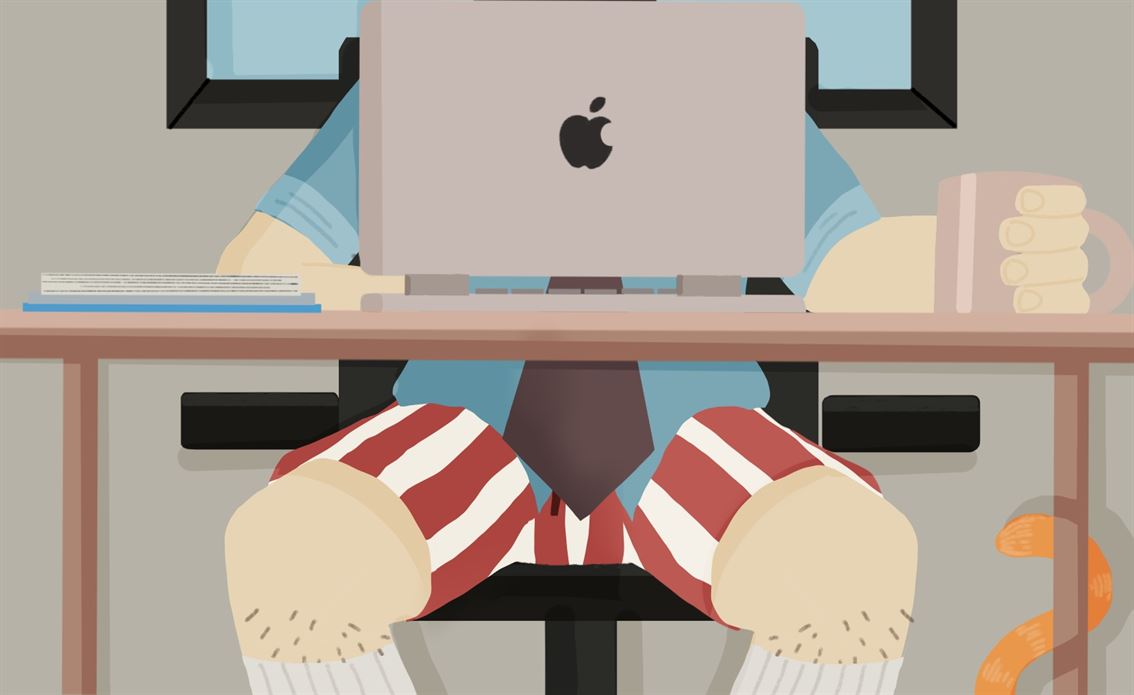#FocusDisruption is a collaboration of all the media outlets within Montclair State’s School of Communication and Media. Our goal is to report stories that highlight the effects or disruption of the last two years and the solutions that have come out of it. All aspects of day-to-day life have been altered but we will be primarily focusing on how mental health, education and the workplace have changed.
The coronavirus (COVID-19) pandemic has been the source of many setbacks. It can be difficult for people to see the light at the end of a seemingly infinite tunnel. One of the most drastic changes has been the shift from in-person to remote work.
But it isn’t all as bad as it seems. Remote work can be beneficial for several reasons.
The grind of American capitalism forces people to work late into the night and wake at the crack of dawn. The CDC reported that more than a third of Americans aren’t getting enough sleep, meaning one in three Americans are increasing their risk of developing chronic conditions such as obesity, diabetes, high blood pressure, heart disease, stroke and frequent mental distress.
One reason for this is that the commute time for the average American is 26 minutes one way, 52 minutes total. Switching people to remote work eliminates commuting, giving people back almost an hour of their time. Getting in those extra minutes of sleep is essential for performing the workday tasks that lie ahead.
Commuting isn’t just physically and emotionally taxing, it’s also expensive. Gas prices are rising nationwide, with New Jersey averaging a whopping $4.10 per gallon. Americans are spending significant amounts of money fueling their cars to get to work and back home.
It seems almost paradoxical that for those who don’t make a high salary as a significant portion of their paychecks will be spent on gas. Remote work would help many people save money.
Inflation has affected people and families across the country. If more companies stayed remote as we move into the post-COVID-19 era, it could soften the blow for many people facing financial devastation. There is no way to escape the money which commuting sucks from our wallets. Even public transportation can be costly — N.J. Transit commuter passes often cost hundreds of dollars.
People tend to spend money on food and coffee throughout their workday. These annoying but necessary expenses add up, causing employees to spend even more money throughout the day. If more people had the opportunity to stay home, they would have the flexibility of preparing their own coffee and lunch from the food already in their living spaces.
Remote work can also be beneficial for people to spend time with their loved ones. Individuals who have children are more likely to have time to drop off or pick them up from school. It also allows pet owners to spend more time with their furry friends, which is especially helpful for alleviating stress and releasing oxytocin and endorphins.
After realizing that remote work is just as efficient in many professional climates if not more than in person, many companies have decided to stay remote for the long term. Some of these companies include Meta, Amazon, CVS Health and Reddit.
It is important to note that not all professions have the luxury of remaining remote. Those working in medical, education and service industries, to name a few, must work in person to adequately perform their professional tasks. But those companies and industries that can continue remotely should consider the benefits of doing so.
COVID-19 has tested the professional world. We must look for the bright side of things in order to prevail and come out of this stronger than ever.
If you need help securing a job, internship or other work opportunities, contact the Career Center at 973-655-7979 or visit the Career Services website to make an appointment.



